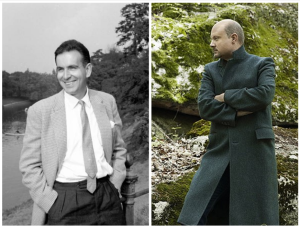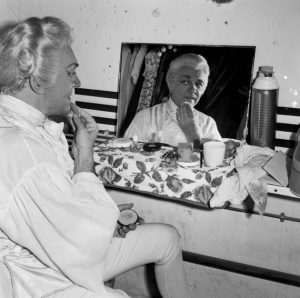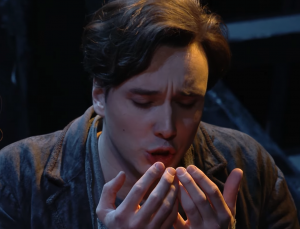Podcast: Play in new window | Download (Duration: 1:32:46 — 102.4MB) | Embed
Subscribe: Spotify | TuneIn | RSS | More
The French baritone Gérard Souzay was born Gérard Tisserand on 8 December 1918 and died in Antibes on 17 August 2004. This episode was one of my first episodes, originally posted in honor of his then 101st birthday. It has been chosen by my friend Randall Scarlata as his Listeners’ Favorite episode in the last of this month’s Great Baritones series, and this is particularly appropriate and moving, because from the age of 19 until Souzay’s death, Randall had a close association with Souzay as both teacher and mentor. He tells some wonderful stories about their work together, shares some of Souzay’s bon mots and also presents with great compassion some of the personal challenges that Souzay faced. He also discusses some of Souzay’s other artistic pursuits, one in particular of which may surprise you! The episode itself explores Souzay’s recorded legacy, with particular emphasis on his earliest recordings. Repertoire ranges from Jaime Ovalle to César Franck, and Robert Schumann and Franz Schubert to Maurice Ravel, Henry Purcell, and Claude Debussy (including an excerpt from his 1955 radio performance of Golaud in Pelléas et Mélisande), many of them accompanied by Souzay’s musical and personal partner Dalton Baldwin. We also hear performances by his teachers and mentors Claire Croiza, Vanni-Marcoux, Pierre Bernac, and Lotte Lehmann, as well as his sister, Geneviève Touraine. And Randall’s jewel of an introduction is a testimonial and tribute you’ll want to turn to again and again. I am proud to present again for your listening pleasure a singer who means as much to me as any other who has ever lived.
Countermelody is a podcast devoted to the glory and the power of the human voice raised in song. Singer and vocal aficionado Daniel Gundlach explores great singers of the past and present focusing in particular on those who are less well-remembered today than they should be. Daniel’s lifetime in music as a professional countertenor, pianist, vocal coach, voice teacher, and journalist yields an exciting array of anecdotes, impressions, and “inside stories.” At Countermelody’s core is the celebration of great singers of all stripes, their instruments, and the connection they make to the words they sing. By clicking on the following link (https://linktr.ee/CountermelodyPodcast) you can find the dedicated Countermelody website which contains additional content including artist photos and episode setlists. The link will also take you to Countermelody’s Patreon page, where you can pledge your monthly support at whatever level you can afford.







